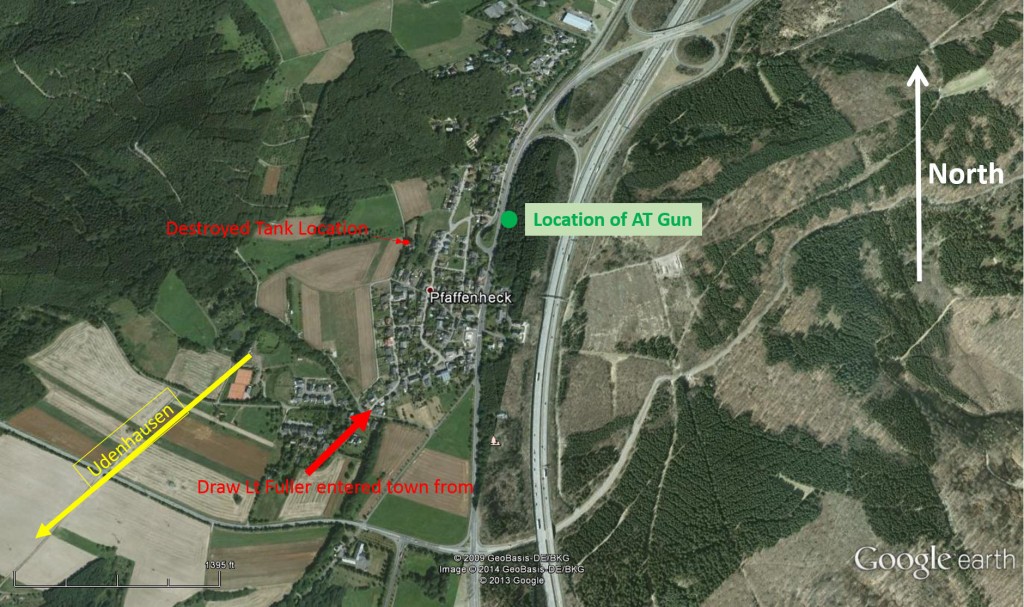I recently read The Armored Fist a unit history of the US 712th Independent Tank Battalion in WWII. One of the events described in detail in the book is the Battle for the town of Pfaffenheck in between the Rhine and Moselle rivers in March of 1945. The event that stuck out at me from the battle was the destruction of an American tank, which killed the driver, Billy Wolfe. I had the opportunity to visit the town in March, 2014 shortly after the 69th Anniversary of the battle.
The Battle of Pfaffenheck was fought between soldiers from the 357th Infantry Regiment of the US 90th IN Division, the 2nd Platoon of C Company 712th Independent US Tank Battalion, and German troops of the 6th SS Mountain Division North (Gebirgsjäger). The 6th SS Division has an interesting history itself. The unit spent most of the war fighting in Finland and when that country made peace with the Soviets the 6th SS made an overland trek through Sweden to Norway where they transferred to Germany and fought in the Vosges Mountains of northern France over the winter.

